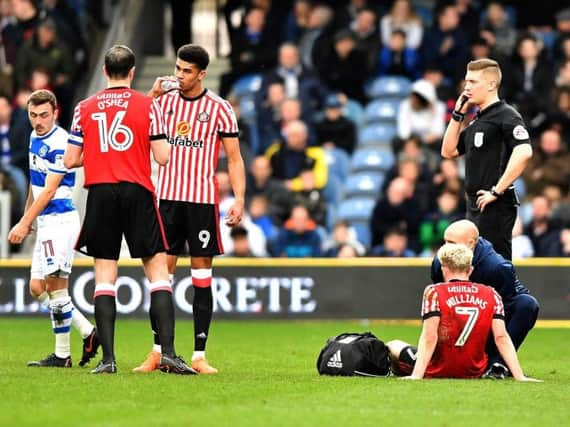Why Sunderland's summer business should help avoid yet another season of injury woe


Coleman was sacked shortly before Stewart Donald’s takeover while Moyes resigned at the end of a wretched season.
He was well of aware of his deep unpopularity on Wearside, certainly, but he had also made pointed remarks in public beforehand that he would stay without the finances to build what he would deem a Championship ready squad.
Advertisement
Hide AdAdvertisement
Hide AdKey to that message was building a squad that was ‘robust’, capable of playing week in, week out.
Moyes had watched on with frustration as key players, in particular the gifted Jan Kirchhoff and the vital Victor Anichebe, missed game after game through injury.
Coleman, also plagued by injury woes during his short tenure, said much the same.
Last summer, a combination of wretched planning and budgetary limitations meant that Moyes’ message was not heeded.
Advertisement
Hide AdAdvertisement
Hide AdThere are few things he called correctly during his year in charge but this was one of them.
Sunderland acted late in the window and many players who arrived had endured woeful pre-season preparations.
In that category came Callum McManaman, bombed out by Tony Pulis and in no way ready to be thrown in week in, week out as Sunderland desperately needed.
He never reached peak fitness and it would be no surprise if, having finally got a proper pre-season under his belt, he thrives at Wigan Athletic.
Advertisement
Hide AdAdvertisement
Hide AdThen there were those with a history of injury problems, Jonny Williams the most notable example.
The previous window saw Moyes bring in Darron Gibson and Bryan Oviedo, both of whom struggled to put together a conistent run of games.
This summer, there are grounds for cautious optimism that the message has got through, even if Jack Ross has been unlucky in the early stages of his tenure.
Tom Flanagan is missing due to an impact injury.
Aiden McGeady has never managed to get on the pitch due to an injury picked up in his own personal training and perhaps unsurprisingly, Jerome Sinclair pulled up as he adjusted to the rigours of senior, competitive football after a difficult spell at Watford.
Advertisement
Hide AdAdvertisement
Hide AdGenerally, however, the squad looks better suited to avoiding the kind of injury crisis that has so often derailed recent seasons.
Firstly, Ross got much of his business done early in the window and some of those who arrived later (Jack Baldwin and Luke O’Nien), did so having played a full part in their former club’s preparations.
That should serve them well in the months ahead as they cope with a demanding schedule.
Secondly, Sunderland’s budget at this level goes a lot further and so they have no longer found themselves shopping in the bargain basement relative to their level.
Advertisement
Hide AdAdvertisement
Hide AdIn recent windows, the signings have either been untested youngsters or very senior players, often with poor records when it comes to playing regularly.
This summer, the average age of Sunderland’s signings is 26, showing that they are now able to acquire players closer to their peak age and therefore better placed to avoid injury troubles.
Dylan McGeouch and Reece James have had injury troubles in the past but the former played regularly last season and Ross believes that the player now knows his body well enough to avoid suffering repetitive issues.
Injuries play a massive part in any campaign and there is always an element of luck attached to it.
Many supporters will aready have their concerns.
Advertisement
Hide AdAdvertisement
Hide AdCharlie Wyke will need time to get up to speed, as will McGeady, the returning Duncan Watmore and Jerome Sinclair.
There remain players on the books who have had problems in their career and that will undoubtedly be a source of anxiety.
The overall picture, however, is of a club learning lessons from the past and finally able to to compete for players approaching the peak of their careers.
Unless they are blighted by some truly rotten luck, Ross should enjoy the benefits of that in a way his predecessors could not.